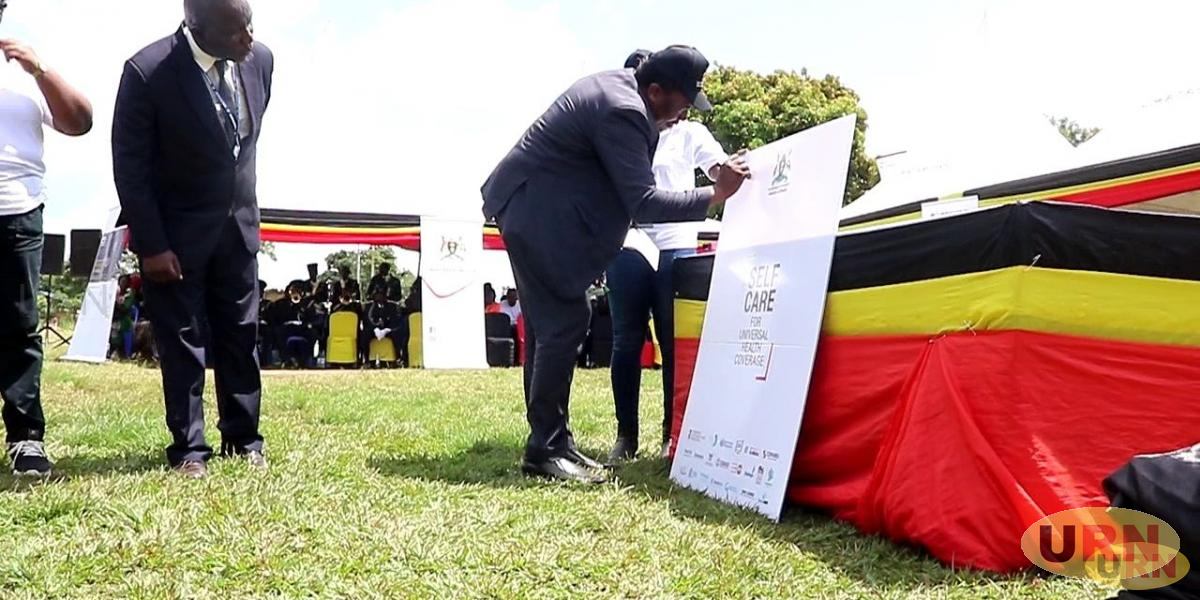By Immaculate Amony
Uganda joined the global community on Friday in commemorating Self-Care Awareness Day, a significant initiative aimed at empowering individuals to take an active role in their health management, ultimately alleviating the burden on healthcare workers. This year’s celebration marked a historic occasion, as it was the first time Uganda participated in the event since the World Health Organization (WHO) endorsed its self-care guidelines four years ago, in collaboration with key stakeholders.
Self-care encompasses the practices that individuals or communities adopt to manage their health independently of the formal healthcare system. This can involve avoiding risky behaviors such as smoking, excessive drinking, or engaging in multiple sexual partnerships. It can also encompass self-diagnosis and recovery strategies after illnesses. The goal of self-care is to equip individuals with the tools to proactively manage their well-being, reducing the strain on healthcare resources.
The national event, held in Dokolo District, revolved around the theme “Advancing sexual and reproductive health, enhancing primary health care and contributing to universal health coverage.” This theme underscores the importance of strengthening both the healthcare system and community awareness to promote self-care practices.
Dr. Charles Olaro, Director of Curative Health Services and chairperson of the self-care expert group at the Ministry of Health, emphasized the benefits of self-care. With self-care, individuals gain the flexibility to access healthcare on their terms, potentially without direct supervision from healthcare professionals. This approach not only empowers individuals but also lightens the load on healthcare workers who can then allocate their efforts more effectively.
Statistics reveal that globally, 400 million people lack access to essential health services, and around 100 million individuals plunge into poverty annually due to out-of-pocket healthcare expenses. Dr. Olaro highlighted how self-care can help communities preserve resources that might otherwise be depleted while seeking medical care at healthcare facilities.
The WHO’s consolidated guidelines on self-care interventions provide evidence-based tools to help individuals, communities, and countries benefit from quality health services and self-care interventions. These interventions include medicines, advice, diagnostics, and digital technologies that can be utilized outside of formal health services.
Dr. Yonas Tegegn Woldemariam, WHO Representative to Uganda, urged the country to adopt and implement the WHO Self-Care guideline systematically. The implementation of these guidelines could facilitate access to sexual and reproductive health rights and other essential health services. “I encourage the leadership to finalize, approve and make these guidelines widely available to all. I also encourage you to promote awareness of the self-care concept, as it will contribute to facilitating access to sexual and reproductive human rights and other health services.”
Annah Kukundakwe, a Senior Program Officer at the Center for Health, Human Rights, and Development (CEHURD), recommended that the regulatory framework incorporate self-care concepts and raise awareness about its significance. Richard Mugabi from the Ministry of Health expressed the ministry’s vision of ensuring every Ugandan attains its highest health standards. He encouraged community members to embrace self-care as a collective responsibility.
Annually, the period between June to 24th July is designated as the self-care awareness month, signifying the importance of promoting and adopting self-care practices for healthier communities.





